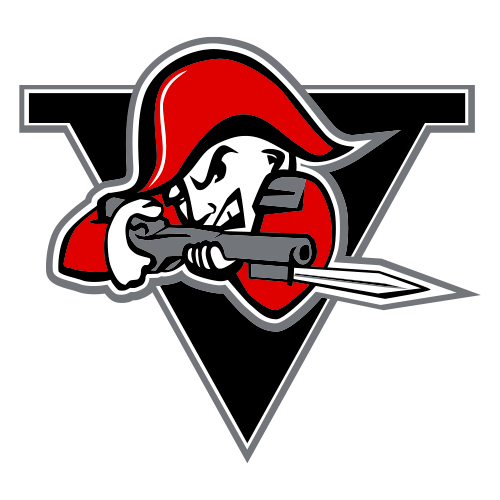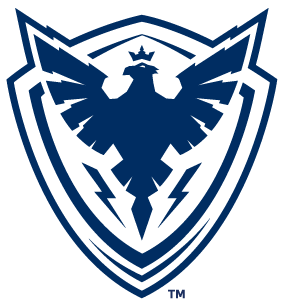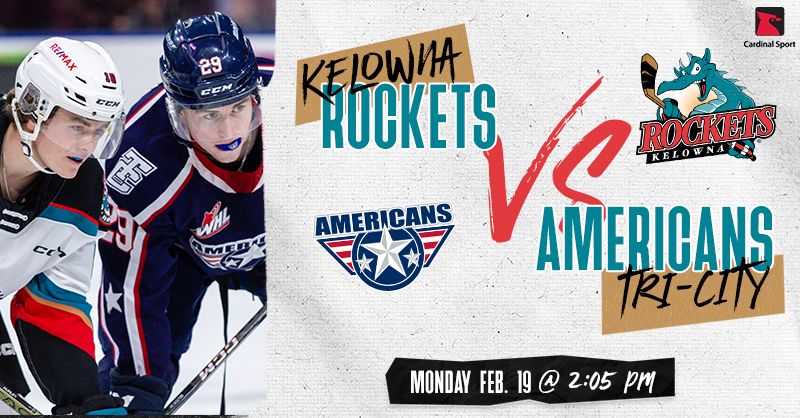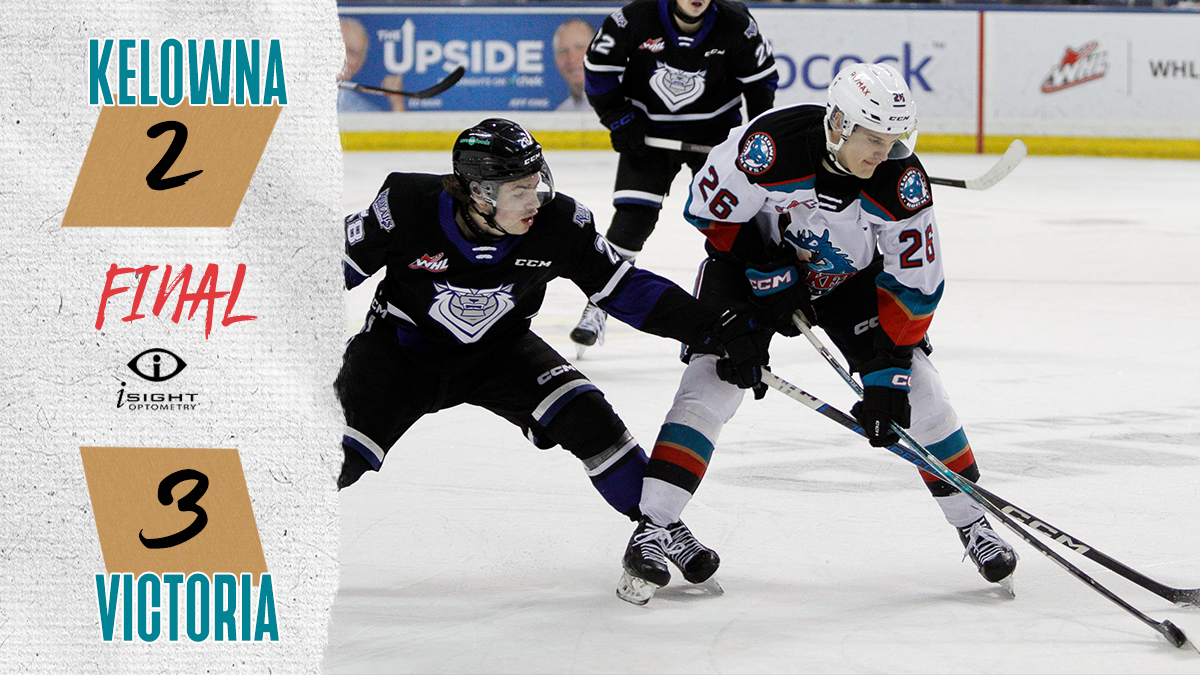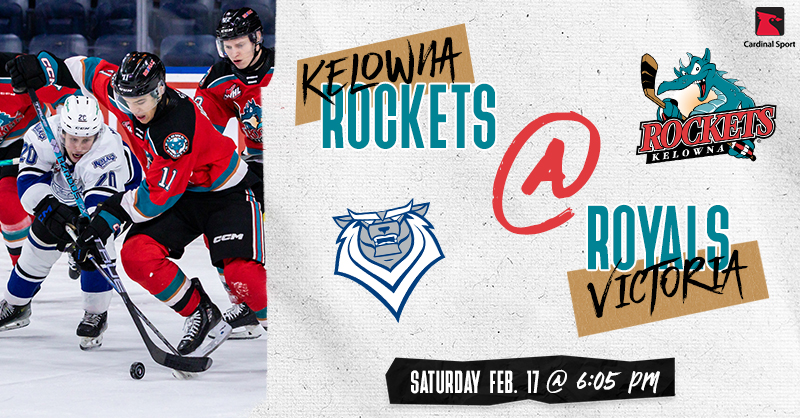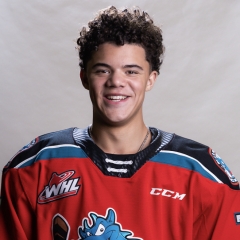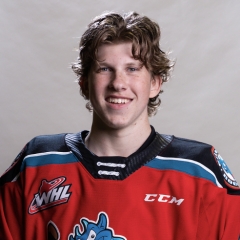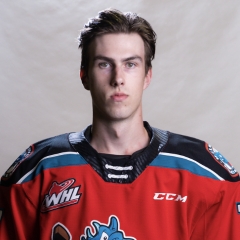Cap News: Rockets defense factory
r By Warren Henderson – Kelowna Capital News
r
r It wasn’t long after his 11th birthday that the dream began to seriously unfold.
r
r The Western Hockey League’s Rockets had just moved from Tacoma to Kelowna, and no one in our city was more captivated with the prospects of what opportunities the franchise shift presented than Josh Gorges.
r
r The eager, young defenceman vowed he would eventually play for the Rockets and, one day, just maybe, take it one step further to the big time.
r
r “When the Rockets first moved here, hockey was absolutely everything to me…it’s all I ever thought about,” said Gorges, who captained the Rockets to the Memorial Cup title in 2004.
r
r “I was at almost every game and I knew right away that’s what I wanted to be. I didn’t know the difference between juniors and the pros back then, but it didn’t matter. I got to watch those players and see what it was all about.
r
r “It was very exciting for me then, and it was very exciting when I actually got a chance to play for my hometown team. I feel very fortunate with the way everything has worked out for me.”
r
r Now, nearly 15 years after watching his first WHL game, Gorges is living the childhood dream as a steady and reliable NHL defenceman with the Montreal Canadiens.
r
r While he wasn’t the first or latest rearguard to break through, Gorges does represent another chapter of the ongoing success story being written by the Kelowna Rockets.
r
r Few if any major junior hockey teams can boast of Kelowna’s enviable record for producing NHL-calibre defenceman over the last decade.
r
r There are currently nine former Rockets patrolling their respective bluelines for NHL clubs—Gorges, Scott Hannan and Kyle Cumiskey in Colorado, Shea Weber in Nashville, Duncan Keith in Chicago, Vancouver’s Alex Edler, Luke Schenn in Toronto, Buffalo’s Tyler Myers, and Sheldon Souray in Edmonton. Only Souray began his major junior career with another WHL club, the Prince George Cougars.
r
r And most observers believe it won’t be long before a 10th player—current Rocket Tyson Barrie—adds his name to the growing list of Kelowna defencemen to take that next major step.
r
r While the Rockets supplied several rearguards to the big time before 2000—including Kyle McLaren, Hannan and Souray—the most impressive stretch of D-man production by the Kelowna machine has come between 2000 and the present day.
r
r Gorges played four seasons with the Rockets (2000-04) before busting into the National Hockey League with San Jose in 2005.
r
r Canadian Olympic team selections Weber and Keith also played their first NHL games in 2005, while Edler and Cumiskey got their first sample of the elite professional game one year later. Luke Schenn and Tyler Myers are the latest graduates to break into the big time and carry on the Rockets’ blueline tradition.
r
r The 6-foot-8 Myers, who played three full seasons in Kelowna—leading them to a WHL title last spring—is even warranting consideration as a leading candidate for the NHL’s rookie of the year honours.
r
r So what is it about the Kelowna Rockets organization that breeds and produces talented, driven and successful big-league defencemen?
r
r Gorges points to many factors, not the least of which is the head of the club’s scouting staff and his knack for landing talent; whether it’s through the WHL bantam draft or by identifying non-drafted free agents such as himself and Weber.
r
r “I think first of all, you have to give a lot of credit to (player personnel director) Lorne Frey. I don’t think he always gets the recognition he deserves,” Gorges said of Frey, who is also the Rockets assistant GM.
r
r “He seems to have the ability to find talented players and see things in young guys that a lot of other people maybe don’t see. A lot of them happen to be defencemen.”
r
r Still, Gorges acknowledges identifying talent is only the first step in the often long process of developing future stars. Gorges said with president and general manager Bruce Hamilton setting the standard, the Rockets have created an environment which allows young players to grow and mature at an accelerated rate, both on and off the ice.
r
r “In Kelowna, they know how to prepare you to be a professional,” he said.
r
r “They treat you like a professional and they also expect you to act like one, so by the time you’re 20 or 21 they already have you prepared. You know how to carry yourself on and off the ice.
r
r “With Bruce (Hamilton), he expects nothing but the best from his players. You get to play for an owner and a manager that cares about winning and also cares about the players as individuals,” Gorges continued.
r
r “On top of that, you get to live and play in a place like Kelowna, so I don’t think you can ask for much more than that.”
r
r “Talk to most players who have been there the last eight or nine years and have won championships and they’d all tell you there isn’t a better place to learn what you need to know.
r
r “Most importantly, they know how to prepare you as people.”
r
r •••
r
r The Kelowna Rockets didn’t become prolific producers of NHL defencemen without the work of the men behind the bench and the rapport they formed with each player.
r
r Beginning in late 1999, coinciding with the hiring of Marc Habscheid as head coach, Bruce Hamilton and the Rockets sought to change the culture of the organization.
r
r Mediocrity, year after year, would no longer be accepted. A new level of accountability and expectations were established.
r
r The coaches—Habscheid, Jeff Truitt, Ryan Huska and Jeff Finley among them—would all play a big hand in implementing the plan, passing it on to their successors and, as a byproduct of that success, developing pro-ready defencemen.
r
r “Marc did a real good job early on of getting the coaching staff organized and how we were going to work with these young guys,” said Hamilton.
r
r “Jeff (Truitt) and Ryan (Huska) were a big part of bringing these guys along, making sure they progressed as well as they could. They brought along the Keiths, the Webers, the Cumiskeys.
r
r “Then Jeff (Finley) was a key part of Schenn and Myers’ development, and even Tyson Barrie. We’ve had a real good committed group of coaches and they deserve to get a lot of credit.”
r
r Still, Hamilton said equal kudos should be shared by the players themselves, for not only heeded the teachings and advice of the Rockets coaching staff but the shared common desire to succeed, regardless of the work and commitment that was required.
r
r Jeff Truitt, who spent seven seasons in Kelowna—four as an assistant and three as head coach—agrees with Hamilton’s assessment that personal drive ultimately decides what career path a player will take.
r
r Truitt said the coaches in Kelowna provided direction to the likes of Weber, Gorges, Keith and Edler, but, to a man, all made it to the NHL of their own volition.
r
r “We were very fortunate to get those kids because they were very directed in what they wanted to do,” said Truitt, who is now the director of hockey operations for the WHL’s Moose Jaw Warriors.
r
r “They were all driven, open to teaching and they just took it all to another level. All the guys had natural ability, but it’s that drive that makes the difference between a good player and a great player.”
r
r Gorges and Weber are good examples of guys who wanted to be the best, he added.
r
r “They were critical of themselves and were willing to make changes to their games and they were always open to what we, the coaches, had to say.
r
r “Alexander Edler was a guy who came here as a bit of an unknown, there had to be some tweaks to his game if he was going to take the next step and after that he understood what the outcome would be.
r
r “He was completely willing to do that. We spent a lot of time in the video room with him, it was a real journey. But he did an outstanding job of changing his game and his natural talents took over.
r
r “When you push these guys at the junior level, they learn how to push at the NHL level and they become great pros.”
r
r The Rockets success on the ice over the last decade has also played a vital role in the club’s ability to identify, recruit and develop top-line rearguards.
r
r By finishing at or near the top of the WHL standings almost on a yearly basis since 2000, Kelowna often finds itself choosing near the bottom of the first round of the bantam draft. While it may not seem an advantage on the surface, the Rockets have made the most of those 18th, 19th or 20th overall picks.
r
r “When you end up picking late like we have so many years, a lot of teams will take the quality forwards near the top, so you end up leaning towards defencemen,” said Hamilton.
r
r “We got Luke Schenn 20th (2004), Tyler Myers was 19th (2005) and Tyson Barrie was 18th (2006), and those are all top-end defencemen.
r
r “Lorne (Frey) has done a real good of drafting. In Myers’ case, he broke his collarbone in his last year of bantam and a lot of people didn’t see him or didn’t know much about him. Lorne and our staff liked him a lot, so sometimes that’s the way it works out.”
r
r Thanks to frequent references to the Rockets on Hockey Night in Canada, TSN, Sportsnet, and in various national sports publications, the news is clearly out that Kelowna has become a top-flight manufacturing hub of NHL blueline talent.
r
r In fact, word even spread last year as far as Arlington, Tex., home of one of the Rockets’ young prospects, Cole Martin.
r
r “He’s a defenceman, his father called us from Texas and said he wanted us to draft his son,” Hamilton said.
r
r “He had seen and heard about Tyler Myers playing in Kelowna and said, ‘That’s where I want my son to play.’ So we drafted him 53rd last year and he could be a part of our future.
r
r “That’s the payoff of seeing so many of our guys in the NHL.”
r
r In addition to Myers’ eye-popping performance as an NHL rookie, having two ex-Rocket defencemen named to Canada’s Olympic team—Shea Weber and Duncan
r
r Keith—only enhances Kelowna’s image as a haven for budding D-men.
r
r Keith is currently averaging the second most ice time of any player in the NHL at more than 26 minutes per game. As of Thursday, he was second in points with 48.
r
r And, on top of it all, Hamilton said the team’s former players are, by far, the biggest advocates of the Rockets organization.
r
r “If we call any of our former guys when we’re trying to get a player to come here, they’re all willing to answer the call and help us out,” said Hamilton.
r
r “Every one of those guys is loyal back to this place, they really take the alumni stuff to heart. It’s very fulfilling to us.”
r
r Fulfilling might be just one word Josh Gorges would use in describing the path of his hockey life, from the early days in a Kelowna Rockets uniform to his NHL career today, now more than 300 games old.
r
r And it’s not just the story of his own career that the 25-year-old defenceman finds gratifying.
r
r “It’s great to see so many of our guys in the NHL now. It seems like every time I play there’s somebody from the Rockets on another team,” said Gorges.
r
r “It’s always fun to play against buddies. I know we all feel like it’s something special, we were very fortunate to play for a great organization and we were there at the right time.
r
r “I’m really the only guy from Kelowna, but most of the other guys, probably 80 per cent of them, come back too. They buy houses and make it their home,” Gorges added. “It’s great to get back in the summer and catch up with everybody. I couldn’t be more happy for all the guys who have made it. They’ve worked for everything they’ve got.”
r
















































